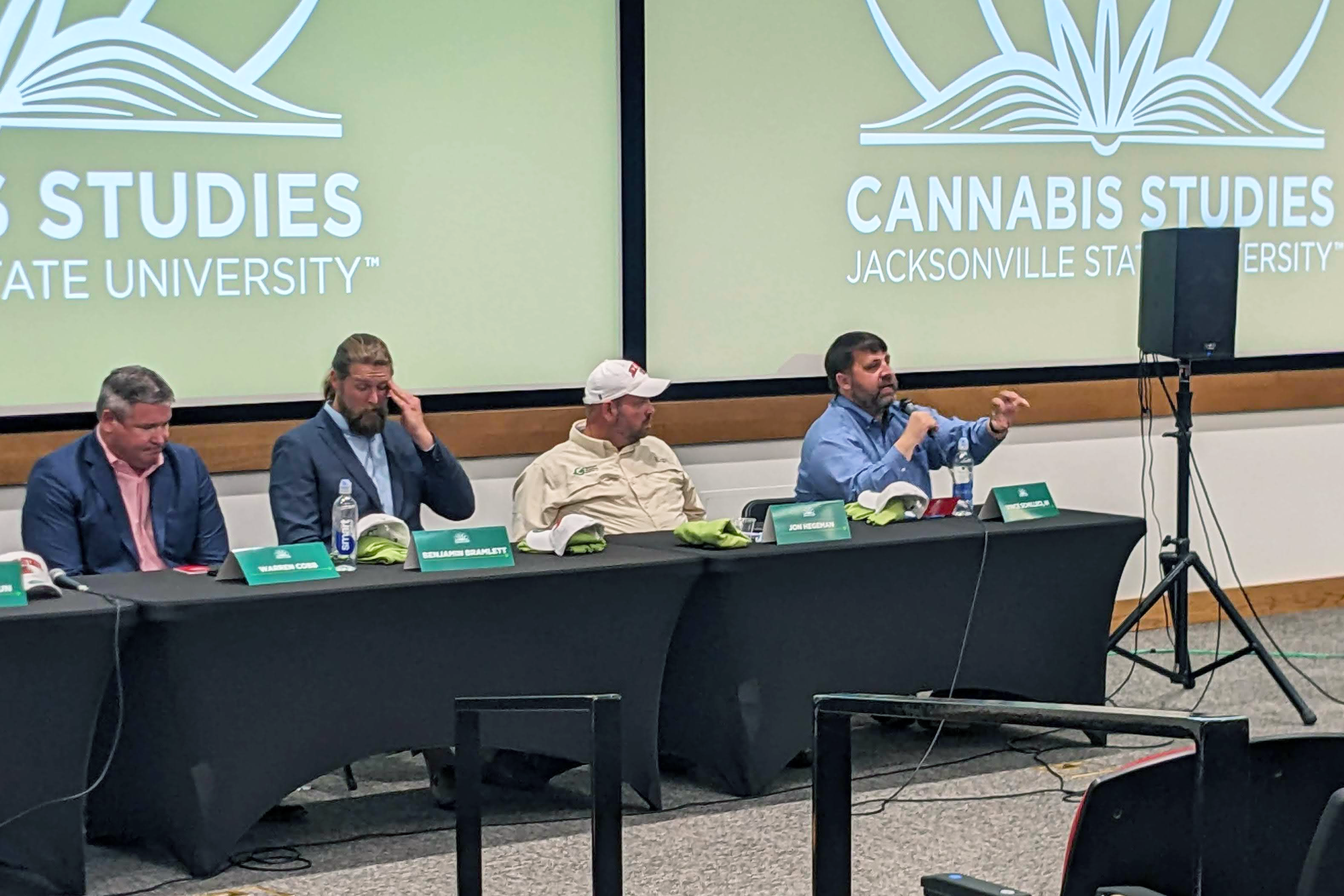JACKSONVILLE — Medical cannabis has been legal in Alabama since 2021, but products have yet to hit dispensary shelves. According to several industry leaders who spoke at Jacksonville State University Wednesday, that's due to a small group of disgruntled applicants holding the program hostage with frivolous lawsuits.
The six marijuana experts spoke at the "Rollin' Out Medical Cannabis" forum to commemorate the school's new cannabis studies curriculum. Each speaker represented a company awarded a license by the Alabama Medical Cannabis Commission (AMCC). Several lamented the continued delays in getting the program off the ground and criticized the groups still fighting for a license after being denied multiple times.
"This is here in Alabama now," Warran Cobb, general counsel for integrated license awardee Sustainable Alabama, said of medical marijuana. "The only reason there's not a dispensary down the street is some folks filed a lawsuit. And we're sitting up here as people who have won licenses; we're ready to go."
Vince Schilleci, chief legal officer of CCS of Alabama, explained how the AMCC has held three rounds of licensing so far due to the lawsuits. However, half of the companies received a license in all three rounds, meaning the Commission got it right the first time, he said, short of a minor tabulation error.
"Of the 25 current license awardees, 12 have won each time. Fifteen have won the past two rounds," he said. "And yet the narrative in Montgomery and the narrative if you read the newspapers is that the system is broke. Most of us testified two weeks ago in a Senate hearing and we told the legislature, 'Your system's not broke. You did a wonderful job. You made the most difficult merit-based program in the country. You did it right.'"
Schilleci said he would "welcome a deposition" to go on record saying he never spoke to or collaborated with the Commission about his application, as some of the denied applicants have alleged.
"We didn't talk to any commissioners before. We followed the rules," Schilleci said. "But it's the same entities that have lost every time that continue to hold this program up. I'm here to tell you the system is not broke; the system is being hijacked."
Schilleci said one of the plaintiffs suing the AMCC told him they would continue to litigate until they get a license, even if it continues to delay the program for years. Others are still looking to the State Legislature for help, with multiple bills filed recently to redo or add more licensing.
"They want our licenses," Cobb added. "... It's the who's who; they're used to getting their way."
Once the legal issues are resolved and the program can begin in full force, Schilleci estimated it could take three to four months until products are ready.
Until then, Jon Hegeman, owner of Greenway Plants Inc., a 22-acre greenhouse facility in Anniston, is biding his time by focusing on other agriculture products.
"It's sad to see that this whole process is being held up just because a few individuals didn't get their way," he said during the panel Q&A. "...Since the courts have everything closed, there's no way to sell it [medical cannabis]. They can't sell it. They can process it, but what's the point of growing anything right now? The minute I put cannabis in our facilities, my insurance goes from $9,000 a year to $85,000… Your cost goes up, up, up, and you can't sell it."
Schilleci, who will teach a class at JSU on the legal issues surrounding medical cannabis, encouraged students and others at the event to contact their state representatives to help get things moving.
He added that if the federal government reschedules marijuana from a Schedule I controlled substance to a Schedule III, it would significantly impact the industry and go a long way to getting the legal and other issues resolved.
To connect with the story's author or comment, email daniel.taylor@1819news.com or find him on Twitter and Facebook.
Don't miss out! Subscribe to our newsletter and get our top stories every weekday morning.










